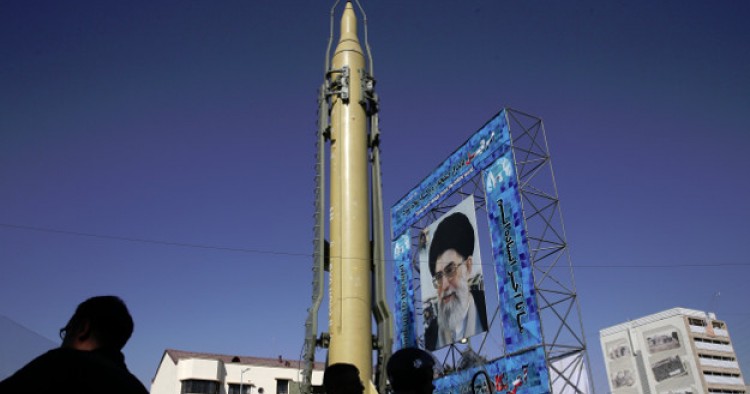President Hassan Rouhani has said that the Iranian government will seek no one's permission to build missiles and upgrade the country’s defense capabilities. “We have repeatedly declared that strengthening the defensive prowess of Iran’s Armed Forces is only aimed at defending the country and will never be used against another country,” he said in a ceremony held in Tehran to unveil new domestically-manufactured defense achievements. “[Striking] a regional balance and maintaining the defensive and deterrent power of a pivotal country like Iran, which has endangered big powers’ interests through its great [Islamic] Revolution and is conveying the message of justice and freedom to the world, are necessary,” he added. The Iranian president blamed the United States and its regional allies for instability and chaos in the Middle East.
At the exhibition, the Iranian Defense Ministry showcased a domestically-made jet called Kowsar, a tactical drone dubbed Mohajer-6, the Nasir anti-ship cruise missile, Fakur air-to-air missile, and the Qaher F-313 fighter jet.
Comment: Iran’s missile program has been a constant source of tension between Washington and Tehran since President Donald Trump took office three months ago. Iran’s launch of Khorramshahr medium-range ballistic missile in late January prompted a strong response from the Trump administration, which put Iran “officially on notice” and imposed new sanctions on Iranian entities and individuals associated with the program.
While the nuclear agreement Tehran signed with world powers in 2015 does not address Iran’s missile program, a subsequent U.N. Security Council Resolution 2231 calls upon Iran “to undertake any activity related to ballistic missiles designed to be capable of delivering nuclear weapons, including launches using such ballistic missile technology.” Iranian officials argue that the country’s missiles are not designed to carry nuclear warheads, but Western officials say some of the missiles Iran has tested after the 2015 nuclear deal have been "inherently capable of delivering nuclear weapons" and are "in defiance of" the U.N. resolution.
Although the Rouhani government and hardliners in Iran differ on how to approach the new U.S. administration, which has taken a tougher stance on Iran, there is a general consensus among all Iranian circles of power that the Islamic Republic should continue its controversial missile program in defiance of international demands.
The U.S. Senate has temporarily delayed a bill that imposes new sanctions on Iran related to its ballistic missile program and other non-nuclear activities in order not to impact the upcoming Iranian election scheduled for May 19.
The Middle East Institute (MEI) is an independent, non-partisan, non-for-profit, educational organization. It does not engage in advocacy and its scholars’ opinions are their own. MEI welcomes financial donations, but retains sole editorial control over its work and its publications reflect only the authors’ views. For a listing of MEI donors, please click here.













